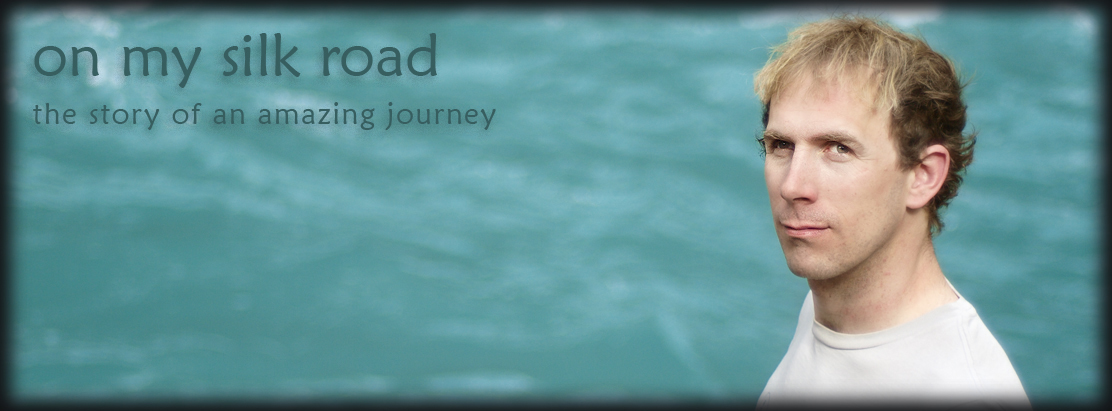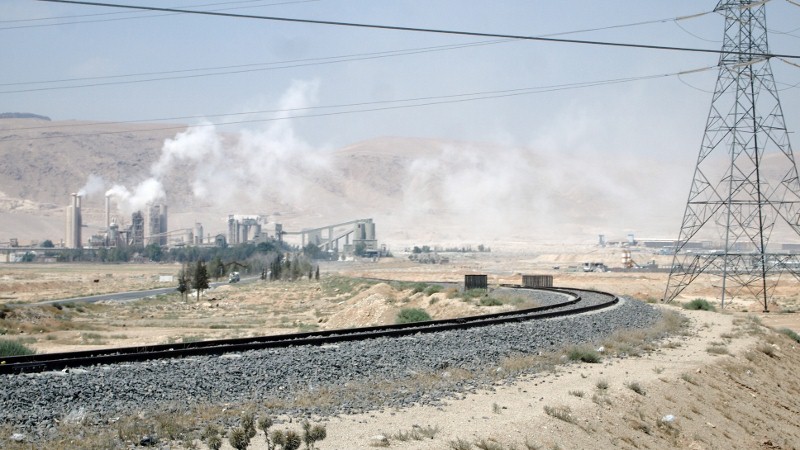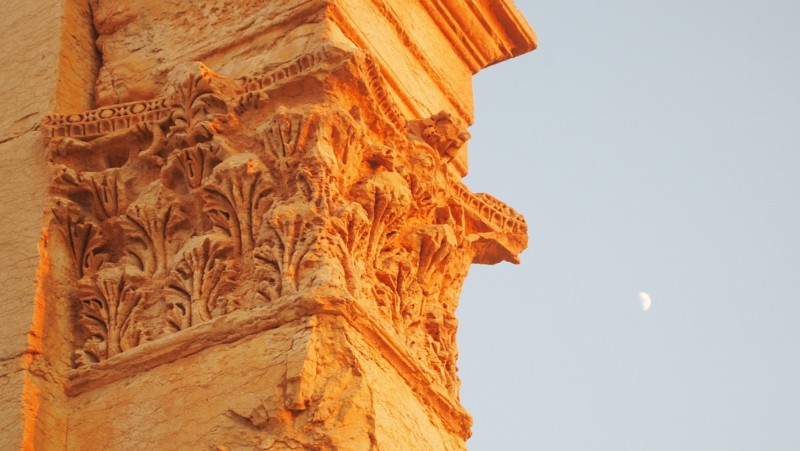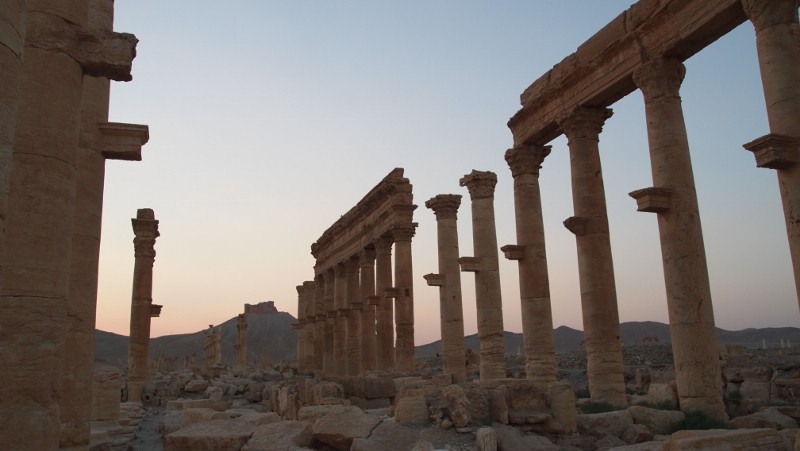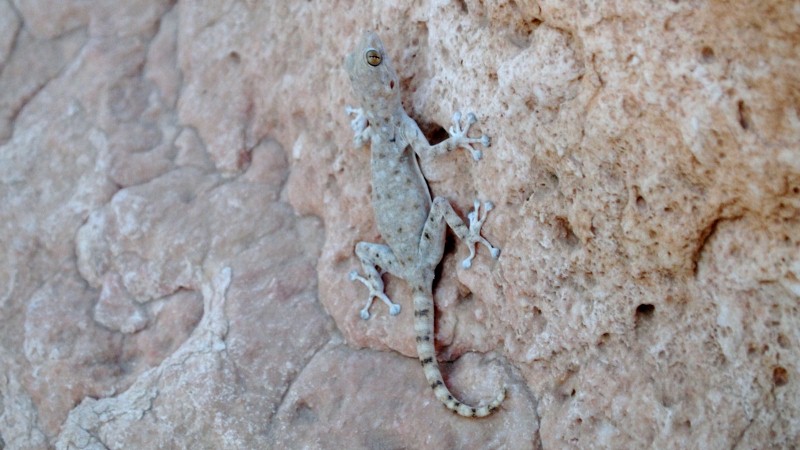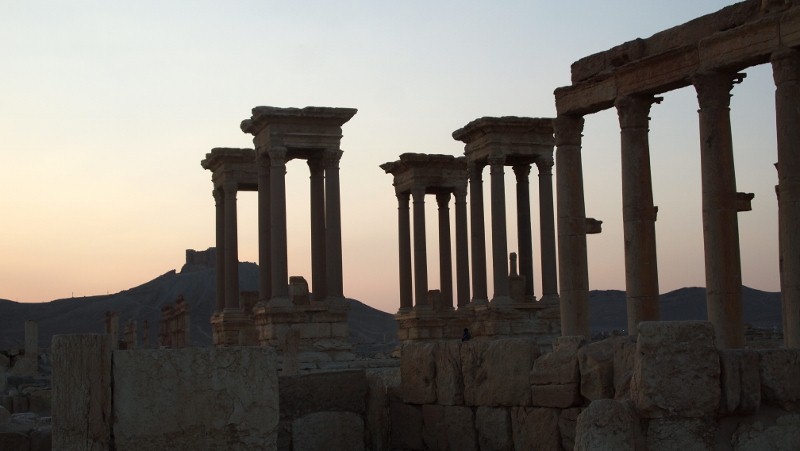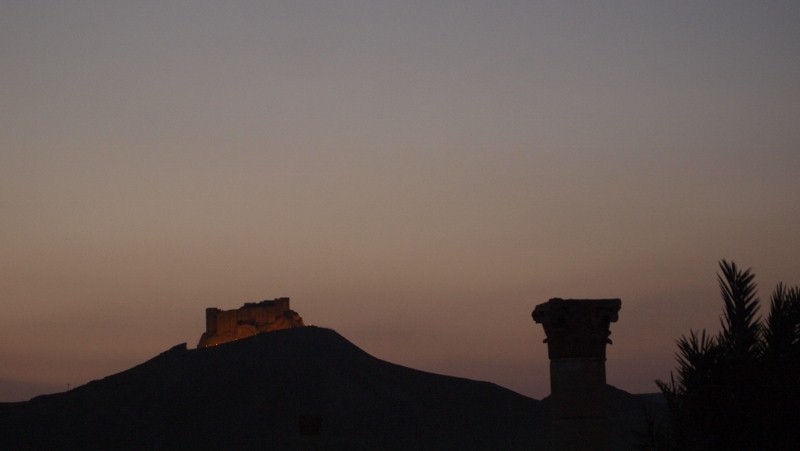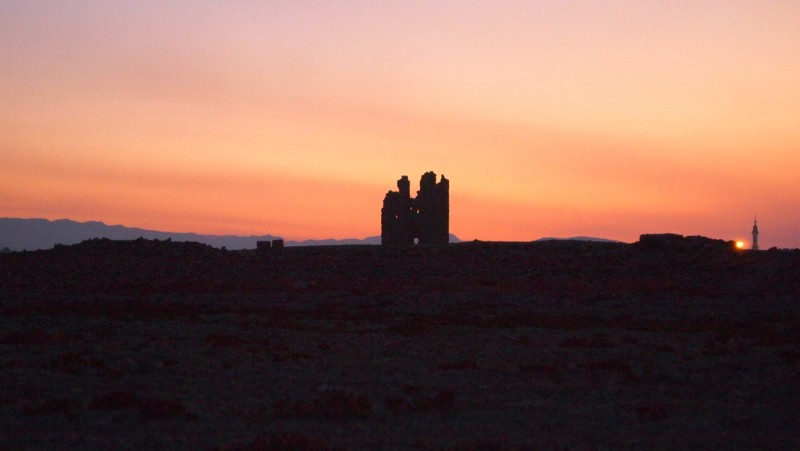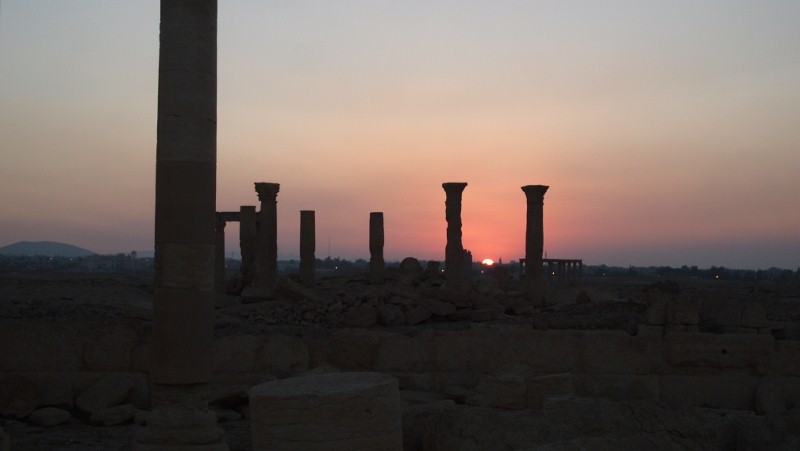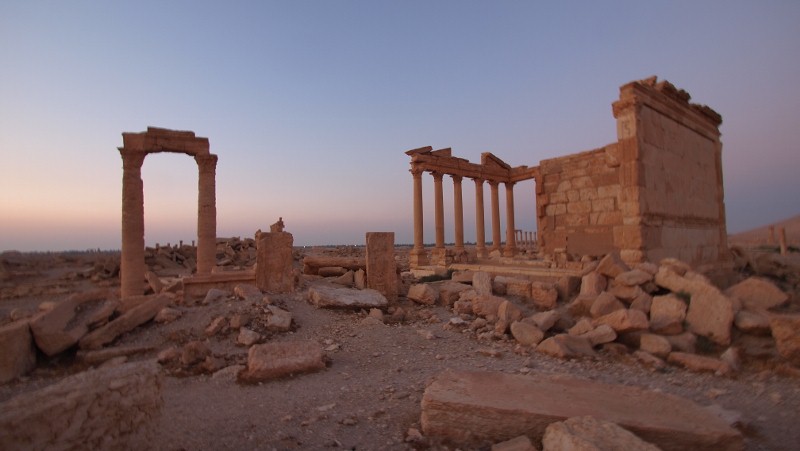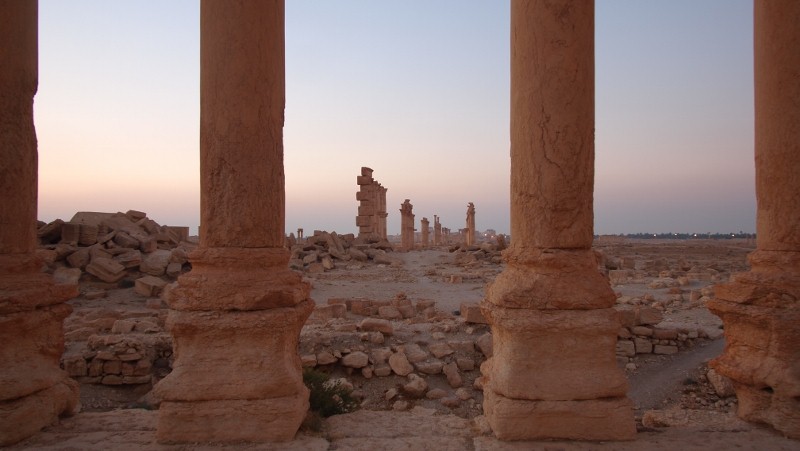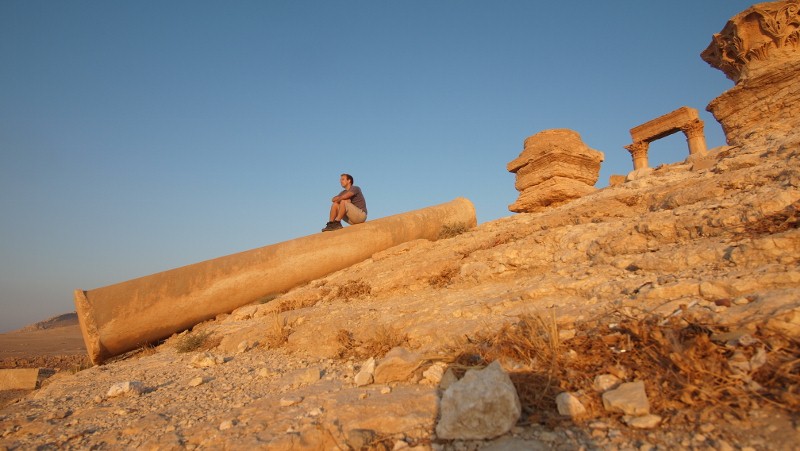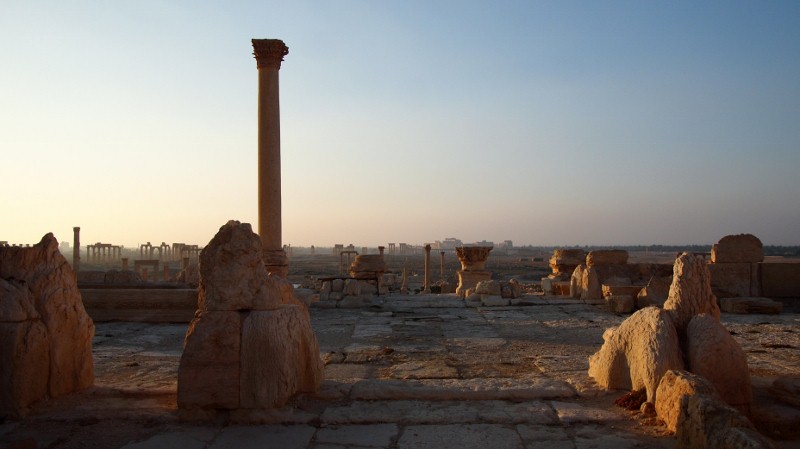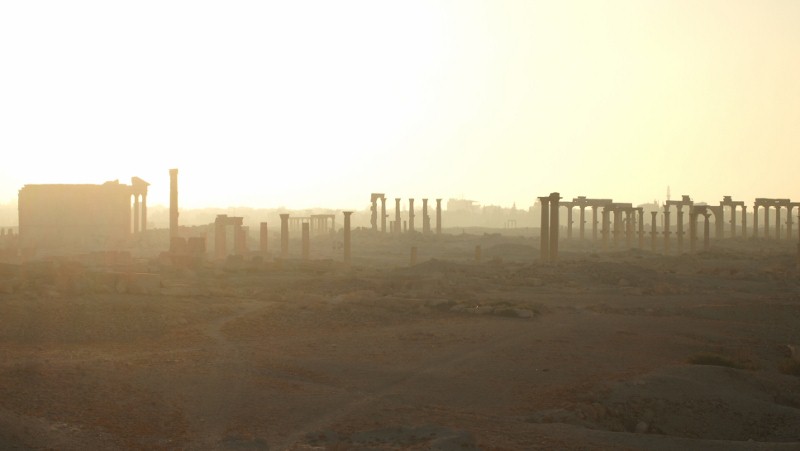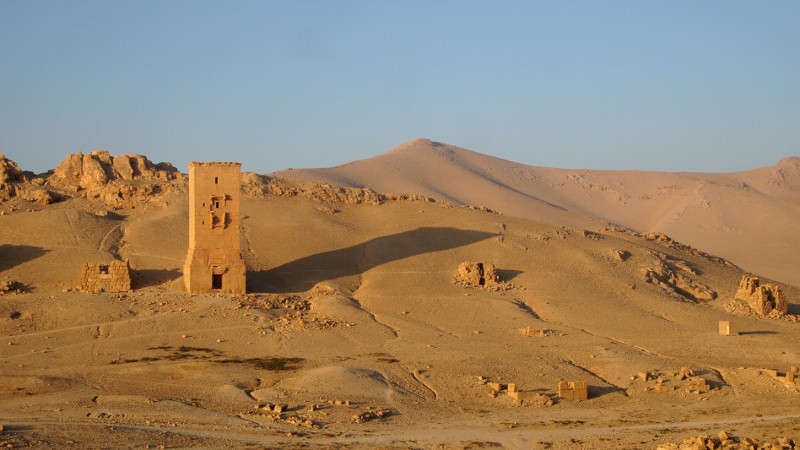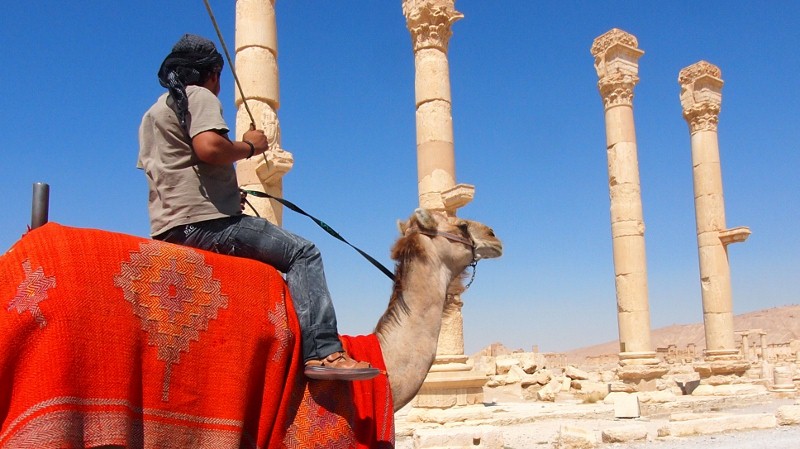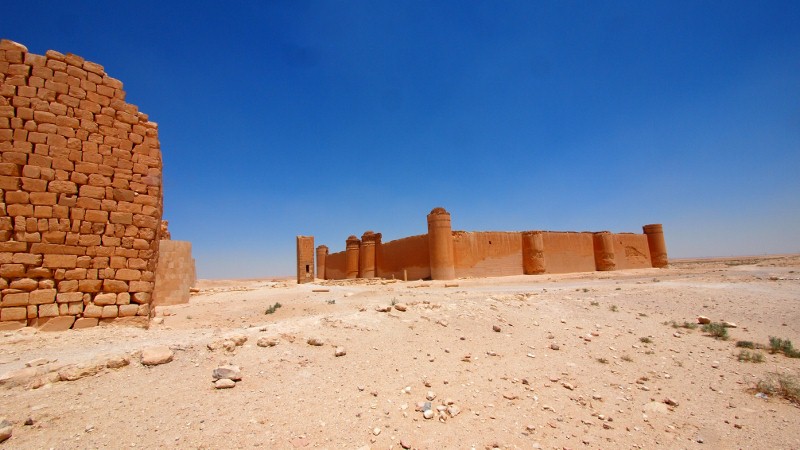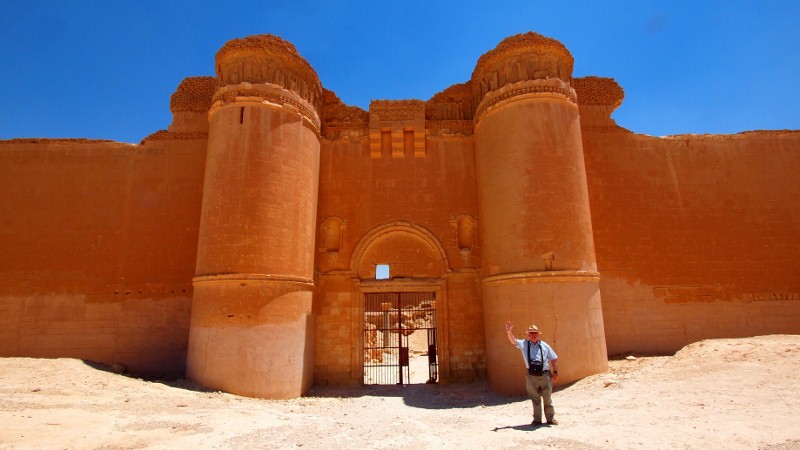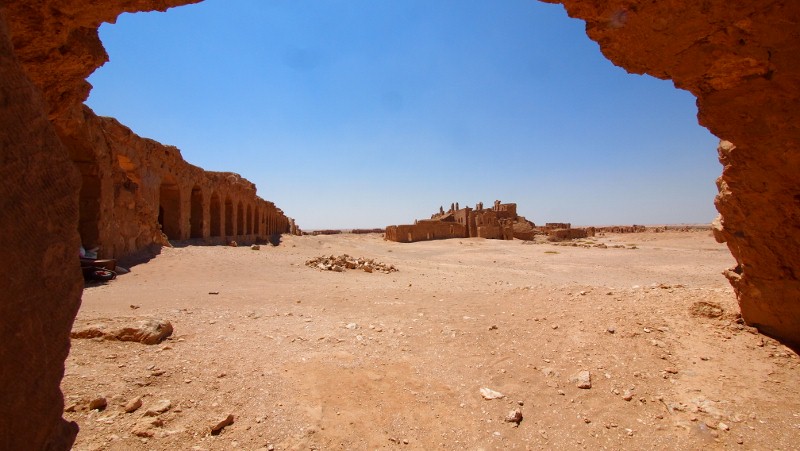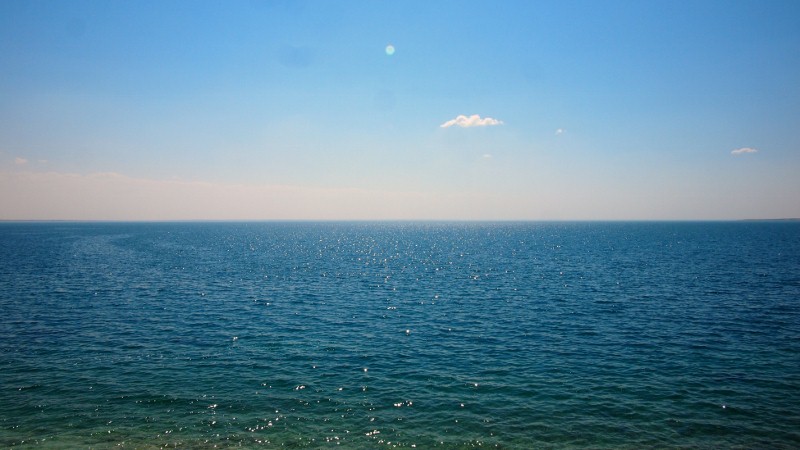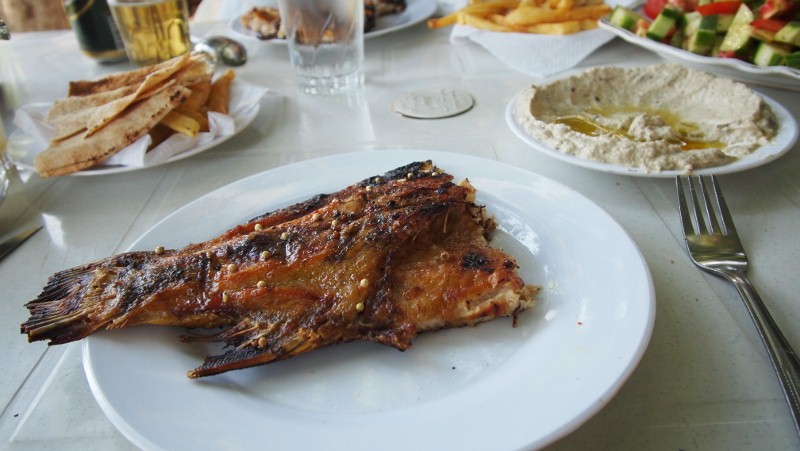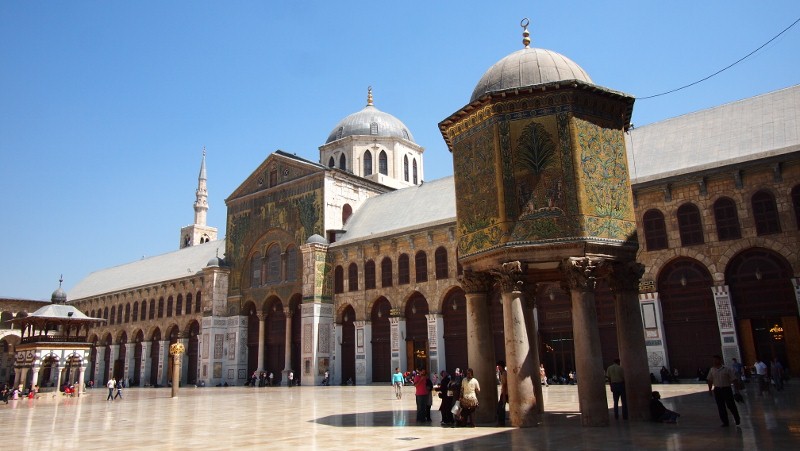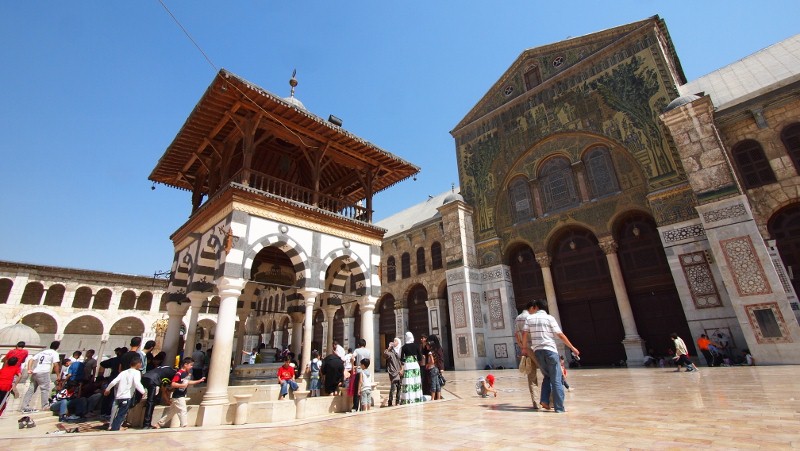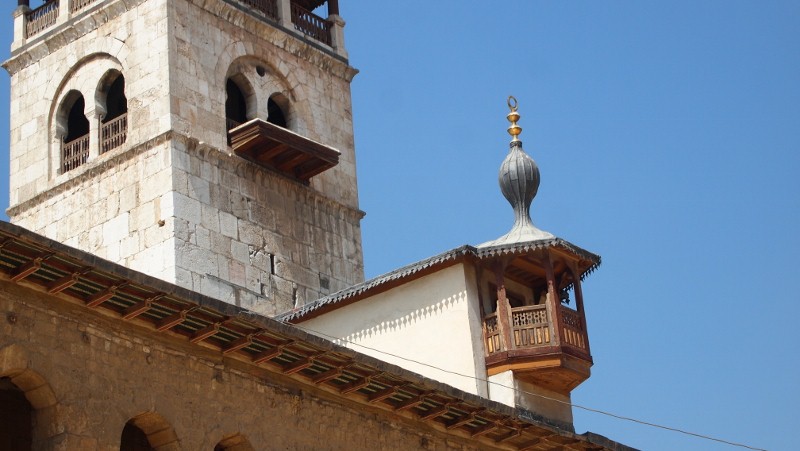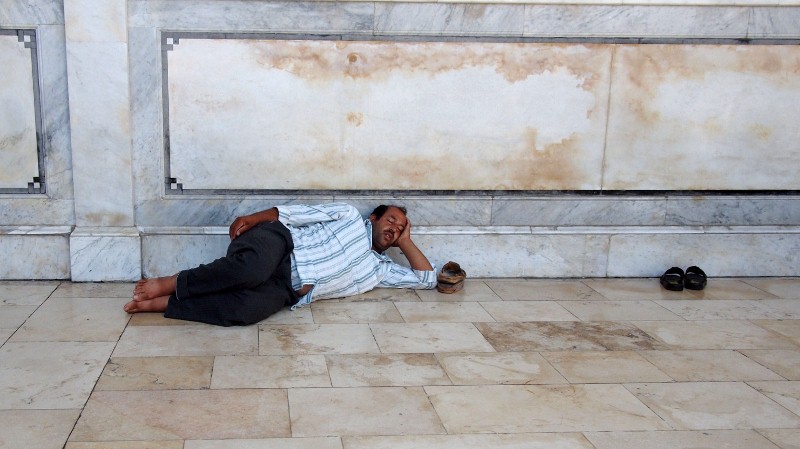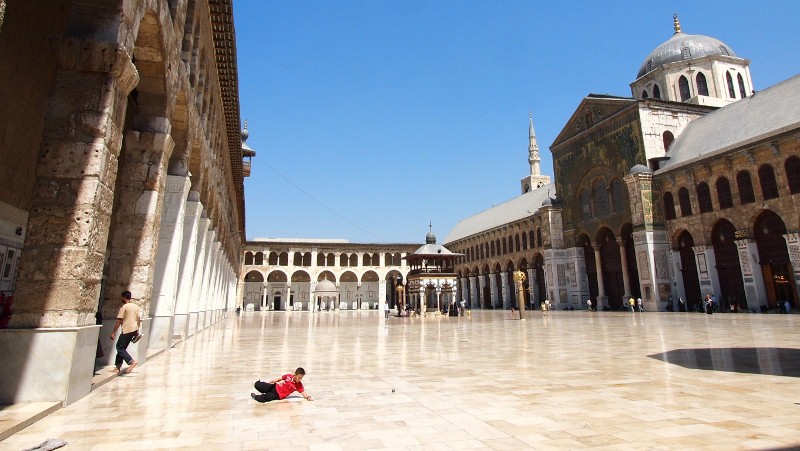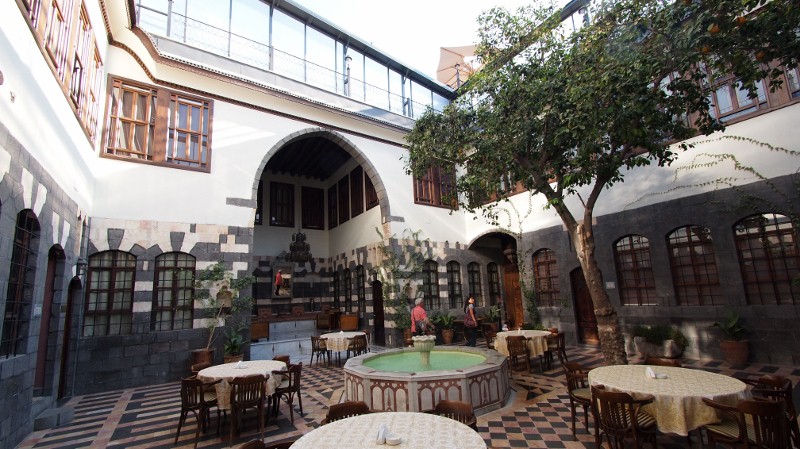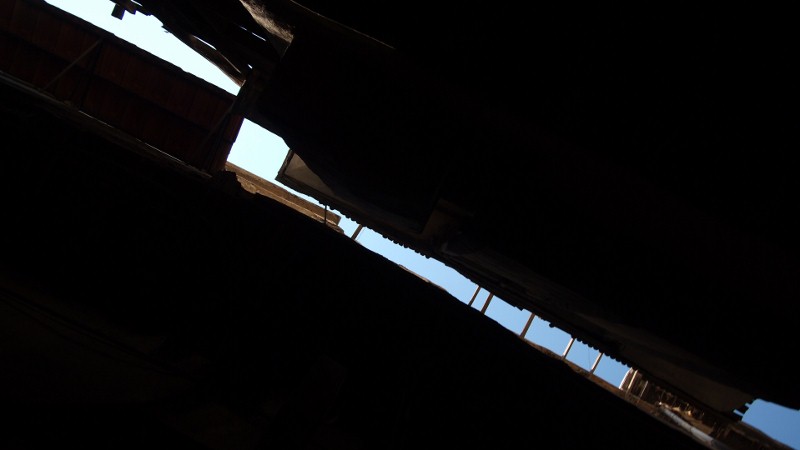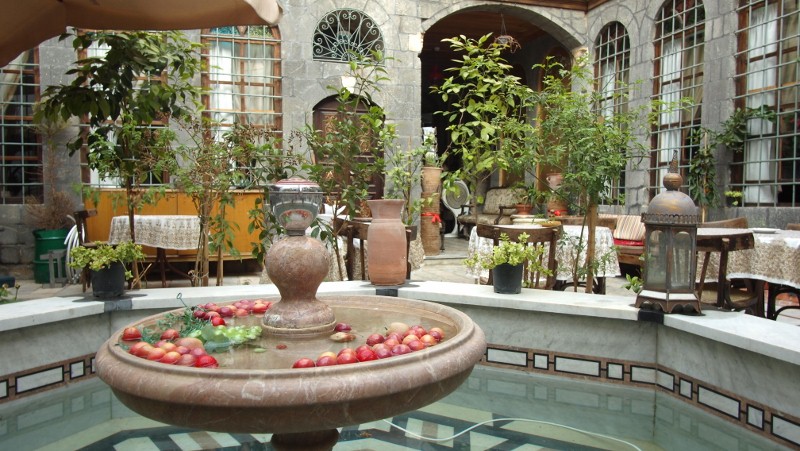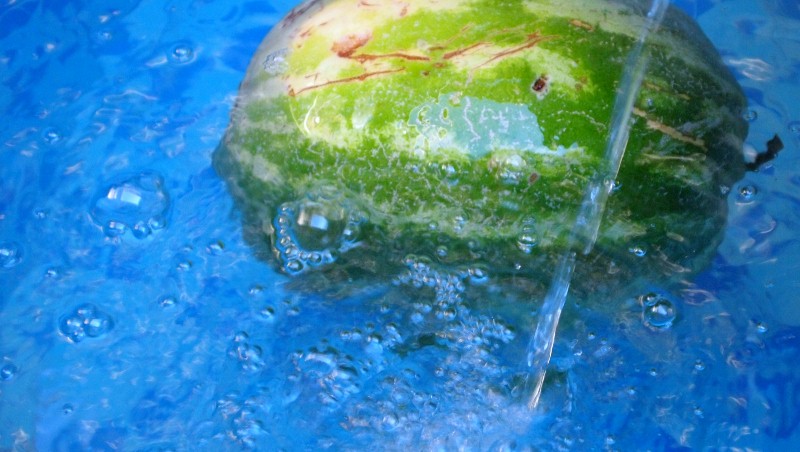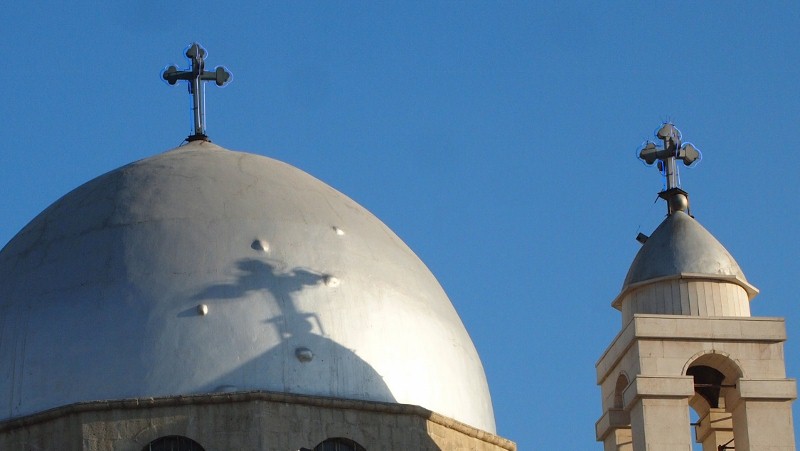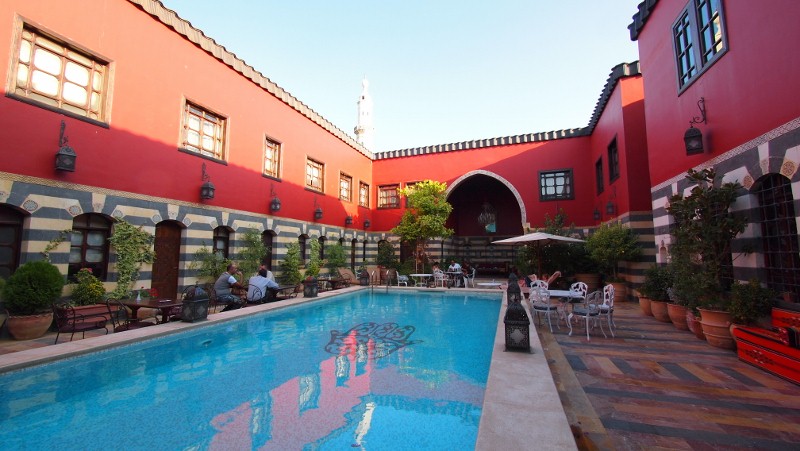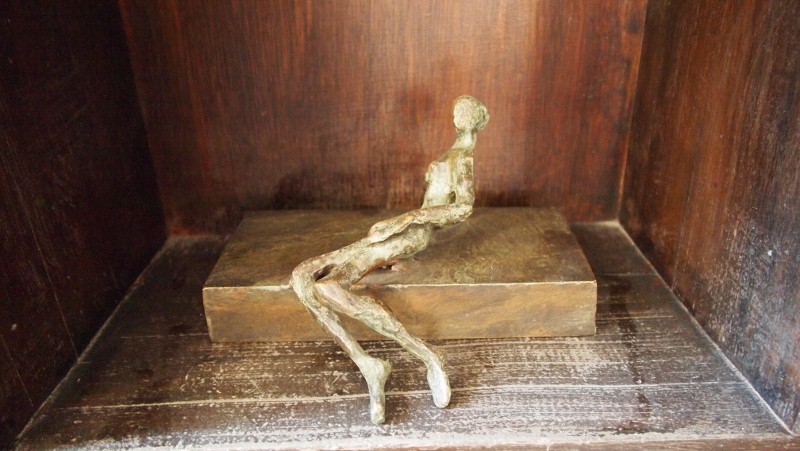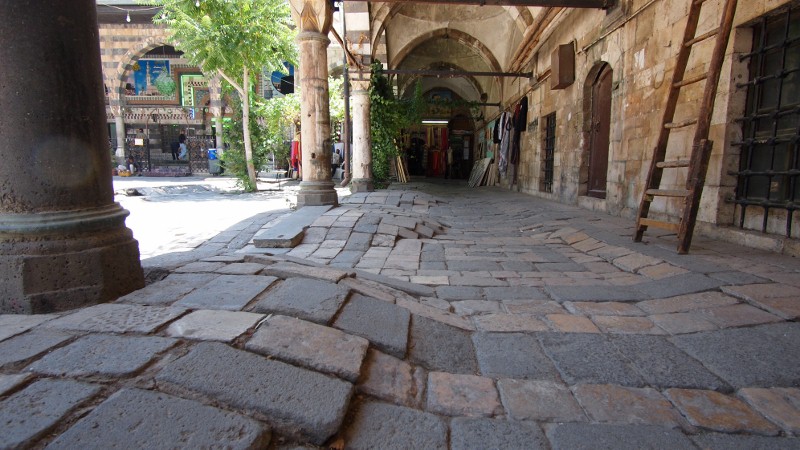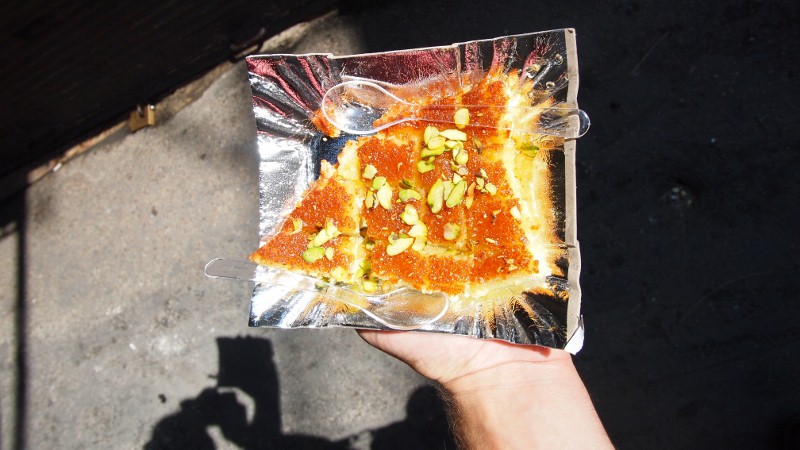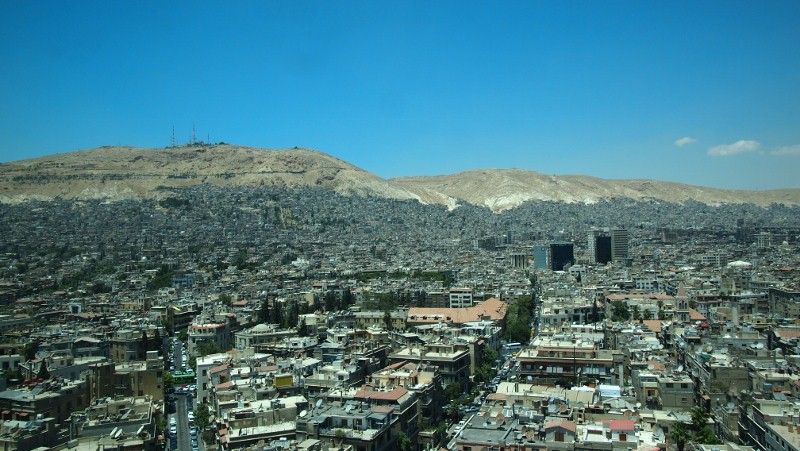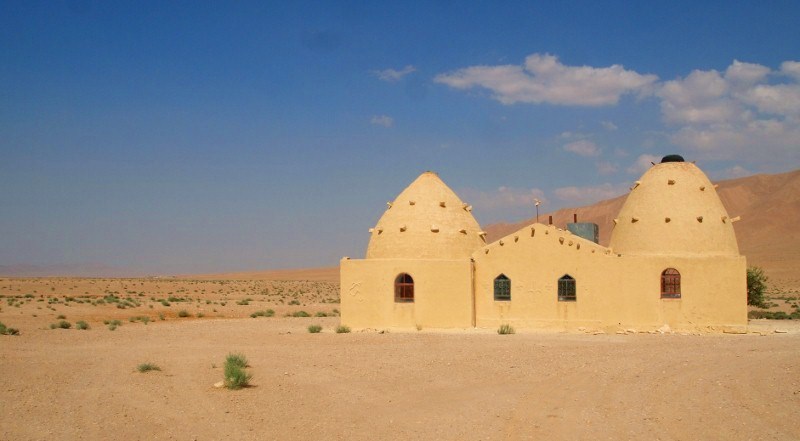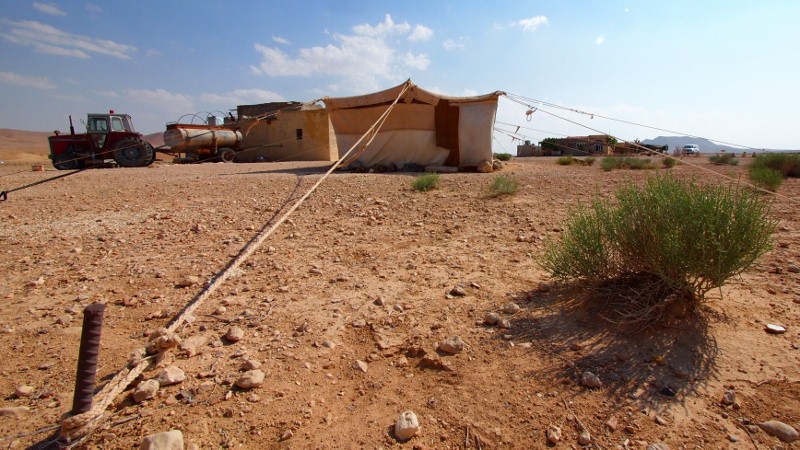08.01
On the road to Palmyra we see various potassium processing plants. In Syria most of this kind of business is owned by the government
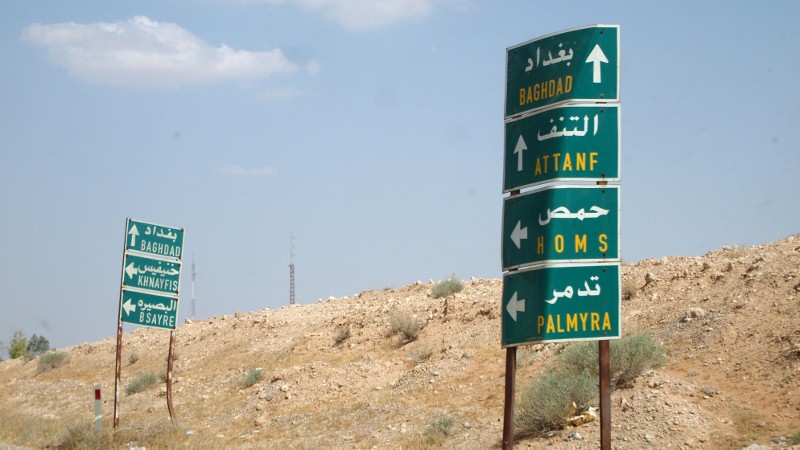
Signs to Bagdad, we are not far from Iraq. The desert has many trucks, roads and hamsters, they are originally from here.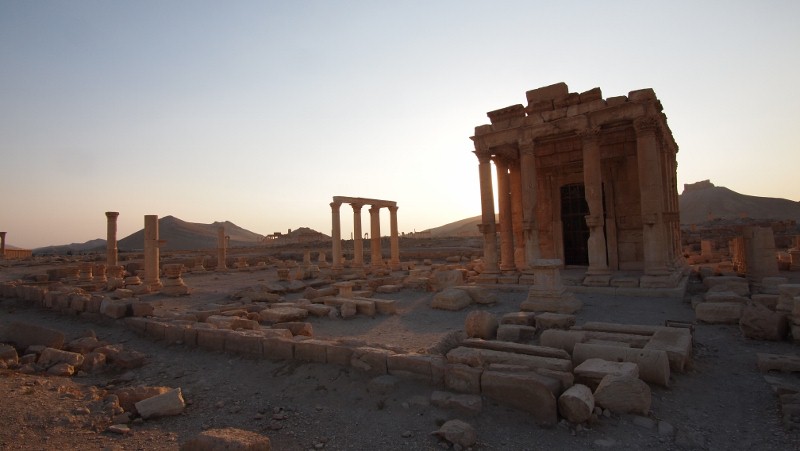
These first pictures are from the sunset on the day we came. We stayed in the Zenobia hotel, name of a Palmyra queen. From the hotel we can see the ruins(nearly as in the picture) as Agatha Christy saw them when she stayed here with her archaeologist husband. Once she said that the good thing of having an archaeologist as a husband is that the older you are the more he likes you.
Palmyra is a mix of styles from all the cultures that came through here.
“Tadmor” was the old name, it meant “the wonder”.
I’m not sure how I saw him.
In the background the Tetrapylon, for columns formed by for pillars. Only one of them is of the original pink marble, the rest are glueish things done by archaeological restorations of the 60s. Here I have to say something that may be a bit polemic. This thing of ruins being beautiful or not depends very often on the level of restoration. Even this restoration from the 60’s is an outrage archeologically speaking, it makes the ruins look more beautiful. If nothing was restored then everything would be flat and trying to imagine how the ruins were would be difficult. On the other hand if the ruins are over-restored it’s not fun either as you don’t believe anything and it looks like a theme park. Palmyra has reached a good balance, maybe these 60s restorations were not that bad.
On top the Saladin castle.
The sun is about to disappear leaving a silhouette of a ruined funeral tower.
Palmyra became important as an oasis when it became a stop between Mesopotamia and Arabia and also being an important stop on the silk road from China to Europe. Before Palmira existed the caravans had to go around hundreds of kilometres to the north, through greener and cooler places , as far as Turkey and reaching Istanbul by land or getting a freighter to a Mediterranean port. The location of the Oasis of Palmyra greatly reduced the transportation time and therefore attracted many merchants that then changed their routes.
It’s existence is known since the second century BC, but it’s peak coincided with the Roman empire. Rome decide to keep it as an independent city. The Romans also defeated the Nabataeans(in Jordan) in the south which meant Palmira received a lot of the traffic that was going through Petra. (I can’t wait! I’ll be there in just a few days!).
How could all this be built? Same as we were saying about the Umayyad mosque in Damascus, spending a lot of money. Palmyra was so important, and independent, they spent a lot of tax money on building it. It was a service city with taxes for caravans, for each camel, horse, the use of water, there was a charge for any activity performed in the town, even for the practice of prostitution.
Sunrise in Palmira. The sun that will melt us later at 44 degrees is rising.
A sunrise is always more intimate than a sunset, there’s less people, or nobody like in this case. At 4.45 the alarm clock rings, that sound when it’s for work is a horror but when it sounds to go to see something beautiful seems to sound different.
Yes, maybe I’ve published too many pictures… I just couldn´t choose!
I’m feeling good, Palmyra is just for me in this private sunrise. This is a real luxury, a place like this for oneself.
Palmira has charged to see it’s “treasures” for 200 years.
The sun lights up the mist, the columns seems to emerge from it. The light hurts my eyes but I want to keep looking.
You can’t just leave Palmyra without seeing some of it’s dozens of tombs that surround the old city. They had several floors with a lot of sarcophagus by floor, some had a place for 300 bodies. They may be less photogenic than the ruins of the city but maybe more interesting. Later on they started to hide the tombs underground.
I like the colour of the camel’s kilim.
Qasr al-Heir al-Sharqi are two castles one in front of the other. Here is probably where the expression “in the middle of nowhere” was invented.
The other Fernando Ayuso of the trip waving to the camera.
Rasafa castle with 550 meters by 400 in the walls. There’s not much left.
This picture would mean nothing if the water wouldn’t be from the Euphrates river. From the Qala’at Ja’abra castle, where the picture was taken, you cant see the end of al-Assad reservoir as it is 80 kilometres long. Years ago the Euphrates river is estimated to have been seven times bigger. When I saw it I realized why it had so much importance in history, the water always bring food, progress and civilization.
Overlooking the water we eat an Euphrates fish with biblical flavour
With this we finished the visit to Syria. My father has loved it, he says he’ll come back. He’s flying back home next day and I’ll go to Jordan to swim in the Dead sea.
After Jordan I’ll have to come back north to Syria and Turkey to go to Georgia, so I’ll tell you some conclusions when I’m back.
See you soon!
Fernando
